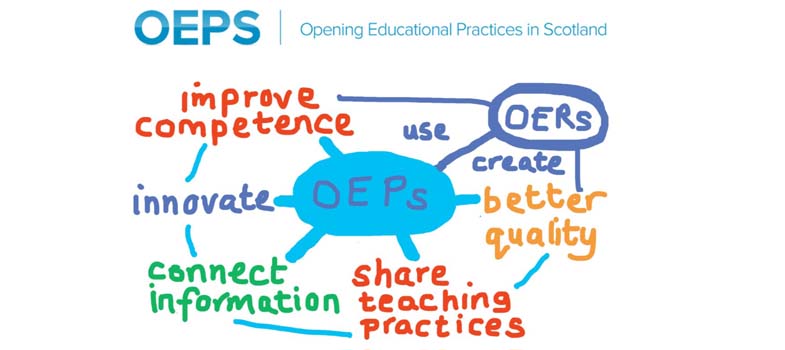Metadata - optimising your OER for search engines
You have created an Open Educational Resource, placed it online in an open VLE or repository and you want others to find and use it. One way of making your OER more visible in amongst the millions of results in an online search is to provide some relevant metadata about it.
Metadata is “data about data” (Merriam Webster dictionary definition of metadata) to provide information about data, in other words to “facilitate in the discovery of relevant information” (Wikipedia definition of Metadata). Traditionally libraries catalogue books in subject categories, using card indexes, now computer catalogues. The information about each book (title, author, subject area, index number, location, etc) is the metadata.
Online databases and repositories of online materials work in a similar way to library catalogues. To make online resources easier to find, using metadata is desirable so that search engines can recognise that they are relevant for a search query and include them in the search results. Modern search engines are very sophisticated in being able to pick out content from the actual resource as they index websites using ‘spider’ software to ‘crawl’ a website. However providing short page or site descriptions and keywords, otherwise called meta description tags, will optimise the search results making it much easier for the search engine to index the website and quicker to find the material. This is called Search Engine Optimisation (SEO). In addition a website or piece of content on a website is more likely to stand out in search results (though won’t necessarily affect search engine rankings) if metadata is used. This is because keywords provided with each page of data on a site will show up bold in most search engines making them easier to spot as a person looks along the list of results.
Any Open Educational Resource uploaded to an online repository needs metadata to make it more visible for those who might be searching for a useful OER in their subject area. OER repositories or OER hosting sites will have places to record a short (up to 160 character) description of a resource and a set of keywords (often comma separated, it depends on the data entry interface). Sometimes keywords are called tags. Either way it is excellent practice to choose which words from your content capture the key message of your OER and to record them in the keywords or tags field. If your resource consists of more than one page of content then you need to provide metadata about each page (such as making page headings distinct and specific rather than general or repetitive). This will also help you if you later come to export the OER from where it is originally hosted to be used on another platform.
An OER repository will also provide a way for you to record which open licence relates to the OER you have created and OER specific searches, such as the OER search on this website will pick up this information and use it to filter results.
See 5 Tips for Writing Effective Meta Descriptions (and why they matter) by Claire Atwell
At a Thinking about Open workshop the issue of metadata was raised. Here Toby Hanning of Glasgow Caledonian University shares his thoughts:
‘Metadata is one of the most important aspects of an open educational resource and yet quite possibly the most undervalued. You can follow best practice at all stages - create a quality resource, upload it to the web, assign a Creative Commons licence - but if you don’t assign good metadata then your resource will not be discoverable. If your resource is not discoverable it may as well not exist.
Assigning metadata doesn’t have to be time consuming or difficult. Just follow these three tips:
- Think about how someone might search for your resource. What words or phrases might they use? Don’t necessarily avoid jargon, but rather include simple terms. For example it’s fine to use the term myocardial infarction, but you should also include keywords or phrases for heart attack, heart failure, and so on.
- There’s no such thing as too much metadata - the more metadata you assign the more discoverable your resource will be. A full title, list of creators, description and keywords should be considered the minimum.
- Include links in your metadata. Linking to related resources or websites, or to information about the creators, will aid discoverability. If someone finds one of your resources useful, chances are they’ll be interested in using your other resources too.'
Image source: drawn by Anna Page for OEPScotland project CC-BY
Some of the content of this article is remixed from material which now appears in the Open Educational Practice course Becoming an open educator which the OEPS project has created.

